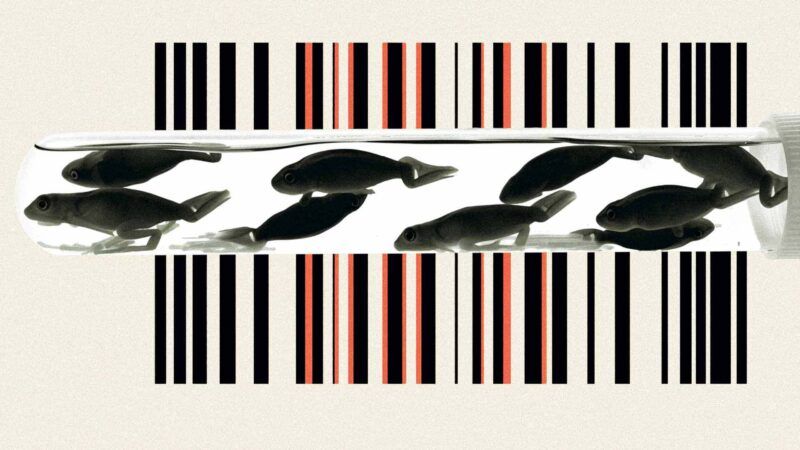ICE Is Trying To Deport a Harvard Medical School Researcher Over Frog Embryos
An immigration judge found the official document initiating Kseniia Petrova’s deportation to be legally deficient. She remains in detention, unable to further her cancer research.

This week, an immigration judge found the official document initiating the deportation of Kseniia Petrova, a Russian-born Harvard Medical School researcher, failed to meet legal standards. Petrova has been in Immigration and Customs Enforcement's (ICE) custody since February. She is challenging the cancellation of her J-1 scholar visa while seeking asylum due to the threat of persecution she faces in Russia. The judge asked the government to file additional information to support deportation, and a hearing to assess the validity of Petrova's deportation charge has been set for late July.
Petrova was initially taken into ICE custody on February 16 at Boston Logan International Airport while returning from a work trip. She had flown to France to pick up frog embryo samples from a partner research lab for her research on cancer detection. Petrova did not declare the samples and was detained by Customs and Border Protection (CBP). Petrova "was lawfully detained after lying to federal officers about carrying substances into the country," including "petri dishes, containers of unknown substances, and loose vials of embryonic frog cells," according to the Department of Homeland Security (DHS).
In cases like these, CBP typically confiscates undeclared items and issues a fine of $50 to $500, Gregory Romanovsky, Petrova's attorney, told MSNBC. Instead, Petrova was taken into custody and her scholar visa was canceled. Romanovsky believes Petrova's arrest is "part of a broader effort to create an unwelcoming and hostile environment for noncitizens." He is representing Petrova in a lawsuit against DHS alleging that her visa cancellation and subsequent detention are unlawful. Although DHS accuses Petrova of "knowingly breaking the law and took deliberate steps to evade it" when she chose to "smuggle" research samples into the U.S., Romanovsky is pushing for her release. He told NBC News that she's a victim of a new, indiscriminate policy of refusing release, despite Petrova not being a flight risk or a risk to the community. Instead, "she's just taking up bed space."
Petrova has also requested asylum for fear of persecution should she return to Russia. Before coming to the U.S., she was arrested for protesting against the war in Ukraine and now fears further persecution and jail time if she returns to Russia. But even if an immigration judge grants her asylum, the appeals process could keep her in continued detention.
While Petrova sits in custody awaiting answers, researchers at Harvard Medical School's Kirschner Lab cannot continue with their cancer research without Petrova's expertise. The lab is currently developing a microscope, whose computer script was developed by Petrova, that could drastically improve early cancer detection, according to one of her co-workers.
Petrova's case represents a growing trend causing many international students to fear immigration backlash. Under the Trump administration, over 1,800 international students have lost their F-1 or J-1 student statuses, according to a tracking database by Inside Higher Ed, with little explanation as to why.


Show Comments (64)